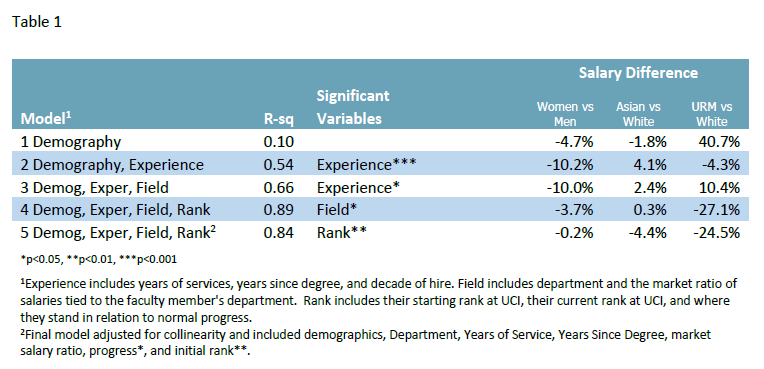The salary data for all Ladder Rank Faculty in Public Health are plotted below.
As a function of rank, step, and gender:

As a function of rank, step, and ethnicity:

Multiple Linear Regression Analysis
Multiple regression analysis of salary vs rank/step. As indicated in Table 1, the simplest model with only demographic variables shows that relative to white male faculty, women earn salaries that are about 5% lower, Asian faculty 2% and URM faculty 41% higher. Only 10% of salary variation is explained by this model. After all control factors are added, 84% of salary variation is explained by a model with demographic, experience, field, and rank variables. After adjusting for covariates, relative to white male faculty, salaries are about 0.2% lower for faculty who are women, 4% lower for Asian, and 25% lower for URM faculty. This model also shows that demographic variables are not statistically significant determinants of faculty salary. The final model predicted salaries within plus or minus 26.1%. (For technically-minded readers, the RMSE on the log base 10 scale is 0.050.)

Progression Analysis
The progression data for all Public Health Ladder Rank Faculty, are plotted below. Normative progression is defined in the Progression Matrix.
Progress by gender:

Progress by ethnicity:

Progress Rate Analysis
Using a simple t-test, the results indicate that there is no statistically significant difference in progression rate means by either gender or ethnicity when compared to white male faculty. Normative progression is defined in the Progression Matrix.
